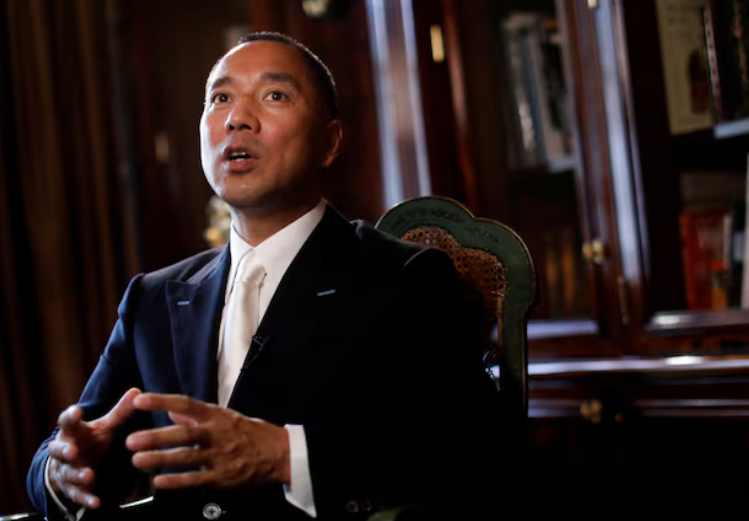Jury selection begins on Wednesday in the criminal trial of exiled Chinese businessman Guo Wengui. U.S. prosecutors accuse Guo of defrauding thousands of investors and supporters out of more than $1 billion. The trial, overseen by U.S. District Judge Analisa Torres in Manhattan, could extend into July. Prosecutors aim to prevent Guo, a fierce critic of China’s Communist Party, from eliciting classified information during witness testimony.
Guo, who uses several aliases including Miles Guo, Miles Kwok, and Ho Wan Kwok, has pleaded not guilty to 12 charges. These charges include securities fraud, wire fraud, unlawful monetary transactions, and conspiracy, including for money laundering. Authorities have jailed him in Brooklyn since his arrest in March 2023, and he could face decades in prison if convicted. Reports vary his age between 54 and 57, with federal prison records stating he is 57.
Guo has been a business associate of former U.S. President Donald Trump’s onetime adviser Steve Bannon. Authorities arrested Bannon in 2020 on Guo’s $37 million yacht, the Lady May, in a separate fraud case. Trump later pardoned Bannon in the final hours of his presidency, after Bannon pleaded not guilty.
Prosecutors accuse Guo and his accomplices of exploiting his prolific online presence and hundreds of thousands of followers to cheat investors in a media company, cryptocurrency ventures, and two other fraud schemes. Instead of delivering the promised outsized financial gains, prosecutors allege Guo stole money to fund an extravagant lifestyle, including a New Jersey mansion, a $3.5 million Ferrari for his son, and two $36,000 mattresses. They have also sought the forfeiture of the mansion, the yacht, bank accounts, a Bugatti, a Lamborghini, and a Rolls Royce.
Guo’s former chief of staff, Yvette Wang, pleaded guilty on May 3 to conspiring to commit both wire fraud and money laundering, which may strengthen the case against Guo. Her sentencing is scheduled for September 10.
Guo left China in 2014 during an anti-corruption crackdown under President Xi Jinping. Chinese officials accused Guo of bribery, money laundering, and other crimes, which he has denied. After moving to the United States, Guo bought a home in the Sherry-Netherland on Manhattan’s Fifth Avenue and garnered ardent fans through his criticism of China’s government, including accusations of corruption against leaders. At Beijing’s request, Interpol issued a “red notice” for Guo’s arrest in April 2017.
Last month, Judge Torres rejected Guo’s bid to dismiss the indictment, allowing prosecutors to try to establish a pattern of racketeering at trial. Jurors will remain anonymous and partially sequestered due to substantial public attention and Guo’s history of using his organization to harass and threaten critics. Torres kept Guo in jail, citing him as a serious flight risk and a danger to the community. A federal appeals court upheld this decision last June.
Guo filed for Chapter 11 bankruptcy protection in Connecticut in February 2022. This case was later combined with the bankruptcies of other companies he controlled. Torres has rejected Guo’s bid to put the bankruptcy cases on hold.

